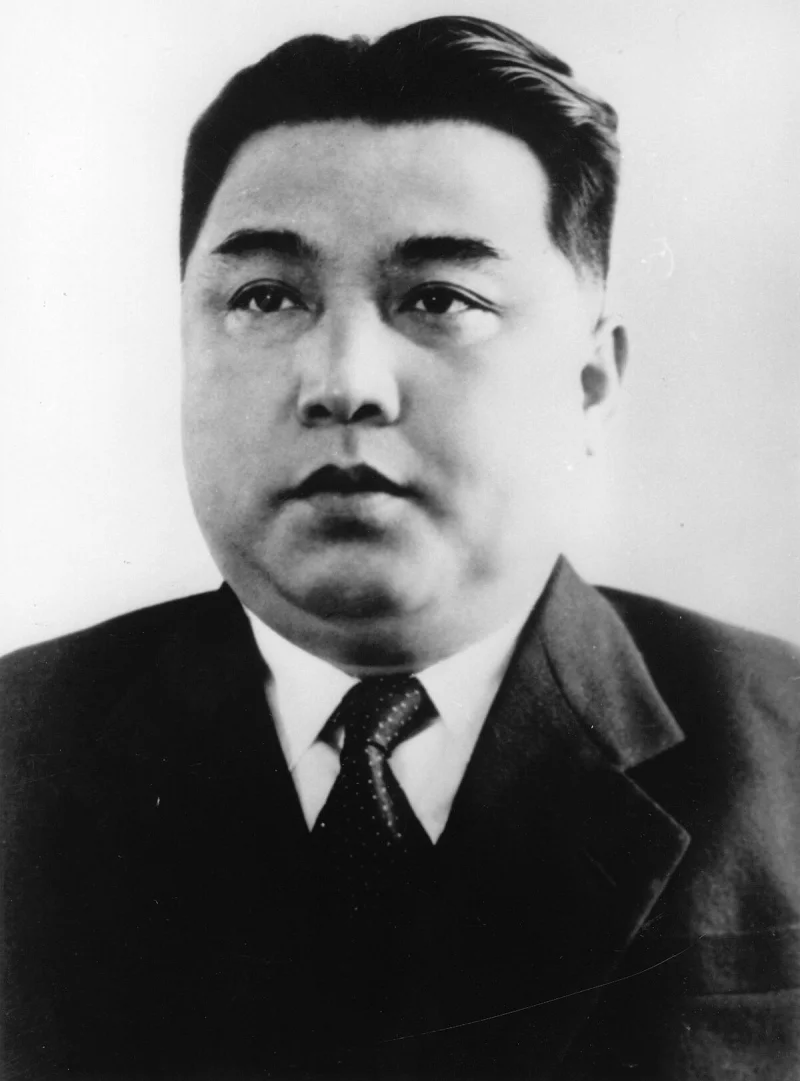Short Summary
Kim Il-sung was the founding leader of North Korea, serving as its Premier and President for over four decades. He established a totalitarian regime and introduced the ideology of Juche, or self-reliance, which became a cornerstone of North Korean policy. Kim played a critical role in the Korean War and was a key figure in Cold War geopolitics. His leadership and legacy continue to shape North Korean society and politics today.
Early Life & Education
Born on April 15, 1912, in Mangyongdae, near Pyongyang, Kim Il-sung's early life was marked by the Japanese occupation of Korea. He was born into a Presbyterian family, and his father was active in the anti-Japanese movement. Kim received his early education in Chinese schools, where he was exposed to communist ideologies. His family's political activities and the environment of colonial resistance were significant influences on his formative years. Later, he moved to Manchuria, where he joined communist guerrilla forces, gaining military experience that would be pivotal in his rise to power.
Career Highlights
Kim Il-sung's career began with his involvement in anti-Japanese guerrilla activities in the 1930s. After World War II, with the division of Korea, he emerged as the leader of the newly established North Korea in 1948. He led the country through the Korean War (1950-1953) against South Korea and United Nations forces. Kim consolidated his power by establishing a centralized government and a personality cult. Under his leadership, North Korea pursued policies of industrialization and militarization, while maintaining a strict communist regime.
Major Achievements
- Establishment of North Korea: Founded the Democratic People's Republic of Korea in 1948.
- Juche Ideology: Introduced the principle of self-reliance, shaping North Korea's political system.
- Korean War Leadership: Led North Korean forces during the Korean War from 1950 to 1953.
- Industrialization: Initiated rapid industrial development in the 1950s and 1960s.
Famous Quotes
- "The most important thing in our work is the human factor and the people's power."
- "As long as our Party is strong and our people are united, we can overcome any difficulties."
Interesting Facts
- Kim Il-sung's birthday is celebrated as the Day of the Sun, a national holiday in North Korea.
- He was known to have had many honorary titles, including "Great Leader" and "Eternal President."
- The Juche Tower in Pyongyang was built to commemorate his 70th birthday.
Legacy / Influence
Kim Il-sung's legacy is deeply intertwined with North Korea's identity and governance. His development of the Juche ideology has left a lasting impact on North Korean politics and society. The dynastic succession he initiated continues to influence the country's leadership. Internationally, his policies and leadership style have contributed to the distinct position North Korea holds in global affairs.
FAQ
Q: Why is this person famous?
A: Kim Il-sung is famous for founding North Korea and shaping its political ideology.
Q: What ideology did he develop?
A: He developed the Juche ideology, emphasizing self-reliance.
Q: How long did he lead North Korea?
A: He led North Korea from its founding in 1948 until his death in 1994.








